Car Rental in Israel
If you’re traveling to Israel, and want to spend time in more than just one place (as most of us do) then you’re going to be thinking about ways to get around. The good news is that there are various modes of transportation in Israel - trains, public buses, private taxis, shared taxis, bikes, electric scooters and even, in Tel Aviv, initiatives such as ‘Bubble’ (shared vans that have the convenience of a taxi but for a far cheaper price).
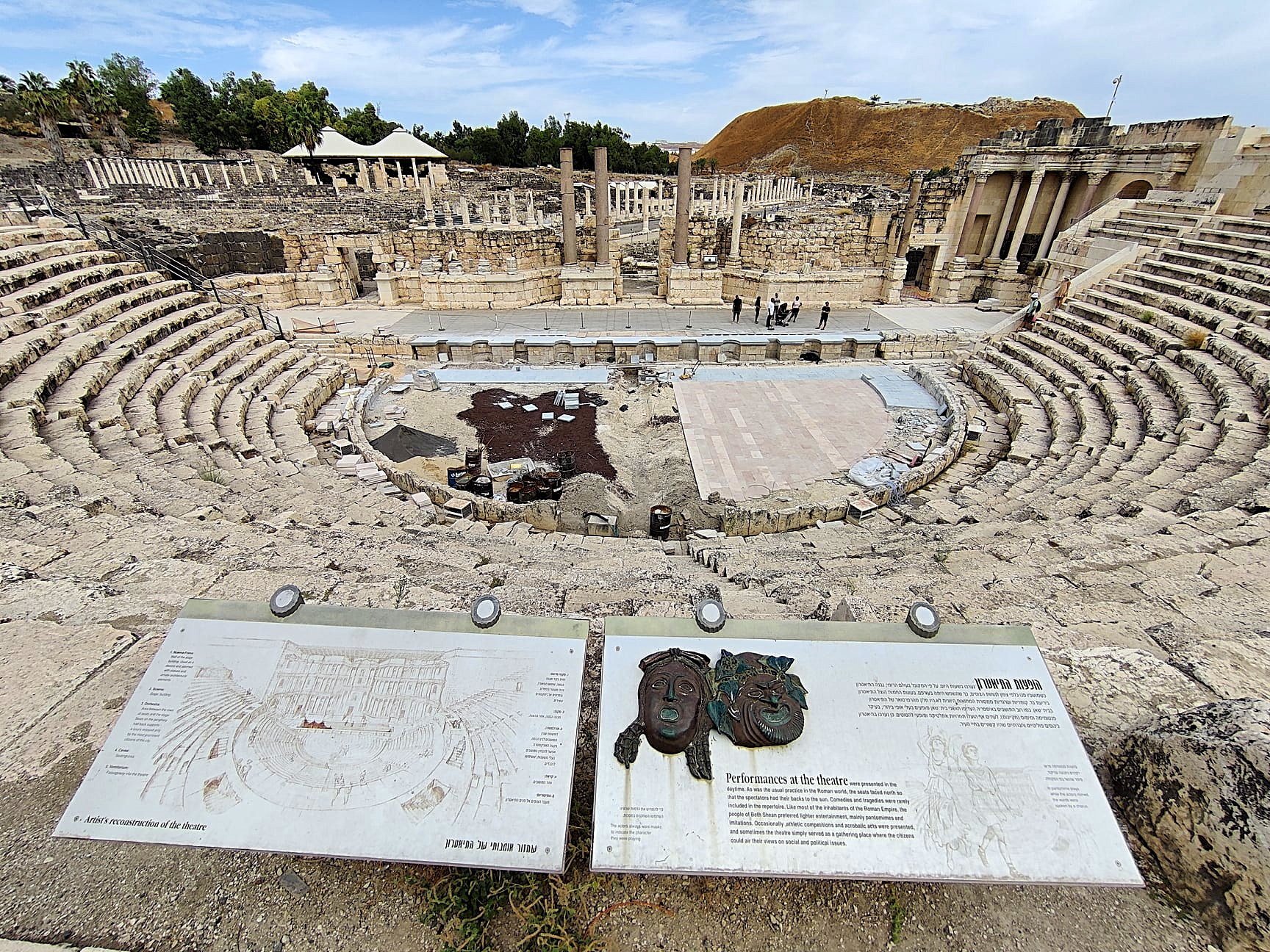
Beit Shean Theatre, Israel. Photo credit: © Dmitry Mishin
However, if you want complete and absolute freedom (if one can ever have that!) then you really should think about renting a car. Once you’re behind the wheel, you’re in complete control - you get to decide when you travel, where you travel, and what kind of route you want to take. And if at the eleventh hour, you want to change your mind, then you won’t have to make phone calls, lose deposits and check schedules. The car will still be there for you when you are ready to leave.
Business and Pleasure - a Сar is Ideal
Renting a car in Israel is ideal for tourists but it’s also great for business trips too. OK, you are in Israel to get work done but that’s no reason you can’t have some fun too. Traveling for work has its own challenges but if you have a car, you can explore the country and - with a bit of internet homework beforehand - find activities, restaurants, coffee shops, and museums that you’re curious about.
Once you’ve rented a car, the country is yours for the taking. If a meeting finishes early or is even rescheduled, you can take advantage of your free time and drive to the beach or a nature reserve in no time at all. Traveling from Tel Aviv to Jerusalem is a breeze, by the way - less than an hour on the highway without traffic, meaning it's an easy day trip, especially if you leave in the afternoon (before rush hour) and return late in the evening.

Driver's hand on steering wheel. Photo by why kei on Unsplash
Off the Beaten Track - Seven Days a Week
And if you’re in Israel as a tourist, you want to have fun and having a car means you set your own agenda. There are many parts of the country that are quite spectacular, including the Galilee, the Golan Heights, Crusader fortresses, and desert trails, but many are pretty inaccessible without a car. When you rent a vehicle, you can put together an itinerary that doesn’t just suit your personality but takes you off the beaten track, to the hidden gems of Israel that tourists never see - the ‘real’ Israel.
Of course, even with a car, it’s sometimes nice to take a private tour of an area, where a professional local guide shows you around and gives you a chance to learn more about the area whilst not having to do too much work! Whether you want to join a group tour or book a customized excursion, here at Bein Harim we offer all kinds of solutions for the business or leisure traveler.
Something else that’s critical to know is that Israel takes its religious Jewish holidays - including the weekly Sabbath - very seriously. Between Friday afternoon (about 2 hours before the sun goes down) until Saturday night (around an hour after the sun sets), all public transportation comes to a halt. This means that getting around is very difficult unless you are prepared to pay for costly private taxis. Of course. if you have a car, you can bypass these restrictions...
Sure, we admit that driving in Israel can sometimes be challenging but you can do it. With some courage and patience, a GPS system (or Waze, which you can download on your smartphone) let’s take a closer look at the nuts and bolts of renting a car here...
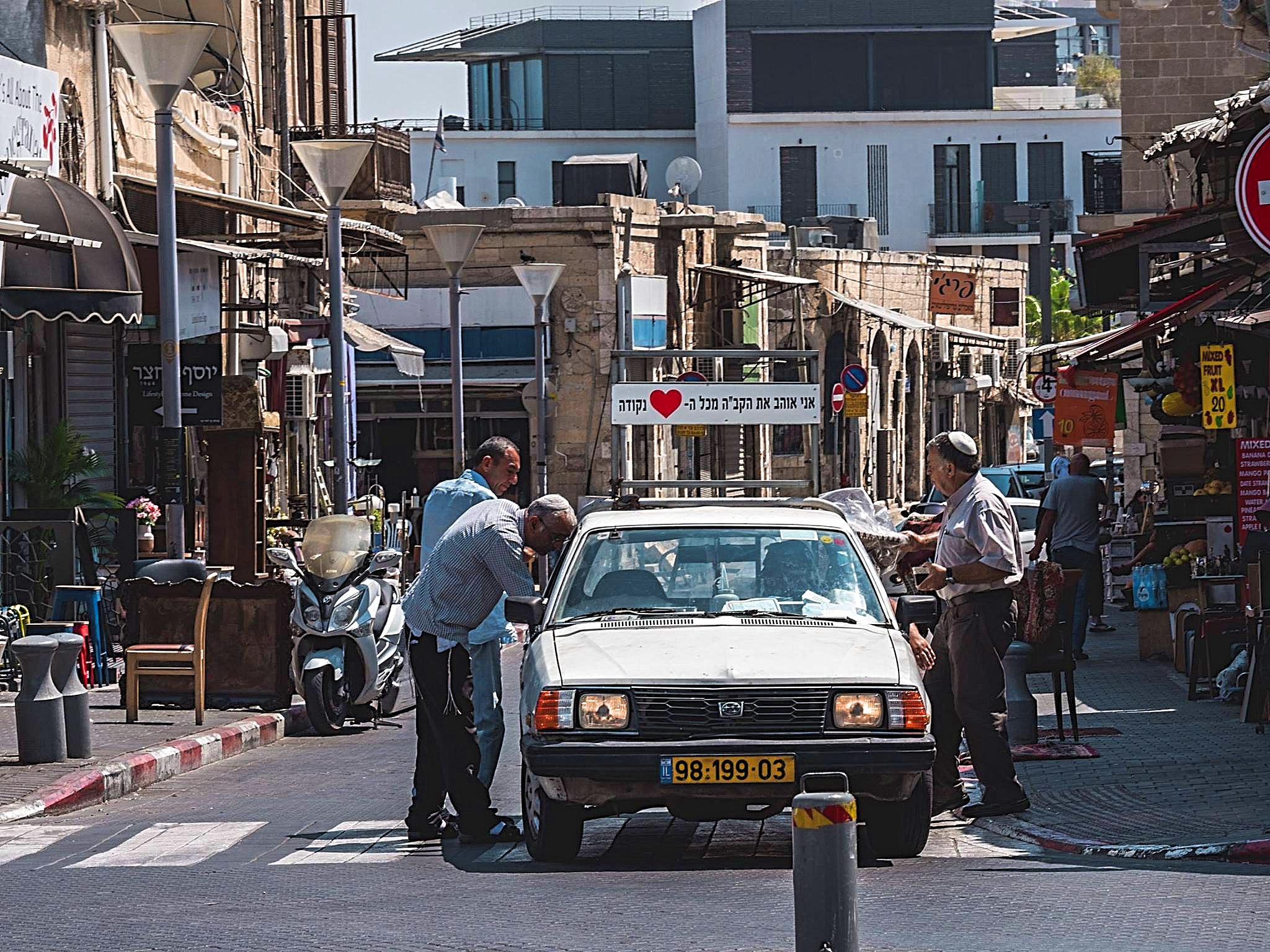
A car driver chatting with his pals in the middle of the street, Jaffa, Israel. Photo credit: © Dmitry Mishin
Car Rental Agencies
The good news is there’s plenty of choice in Israel. What’s the best car hire company to use in Israel? Well, there isn’t one in particular but car rental companies that we'd recommend include Eldan, Hertz, Budget, Shlomo Sixt, Tamir, and Avis. They all have branches dotted around the country - particularly in Jerusalem, Tel Aviv, and Haifa - as well as Ben Gurion Airport.
One thing that is important to note is that it is not possible to drive a rental car from Israel to Jordan. This means that if you’re planning on taking a trip across the border to tour Petra, the best thing to do is to go with a guided tour.
Logistics of Renting a Car in Israel
In Israel, all road signs are written in three languages - Hebrew, Arabic, and English and, like most of Europe and North America, you drive on the right-hand side. We recommend that you download Waze - an app that was ‘born’ in Israel in fact - onto your smartphone before setting off.
It can show you almost every road in Israel, as well as advise you on the fastest route, delay updates, and real-time traffic jams. Its smart technology can even help re-route you, once it knows that a traffic jam is building up, which means you’ll be directed away from crowded areas. This saves you time and frustration and makes for a much more pleasant driving experience!
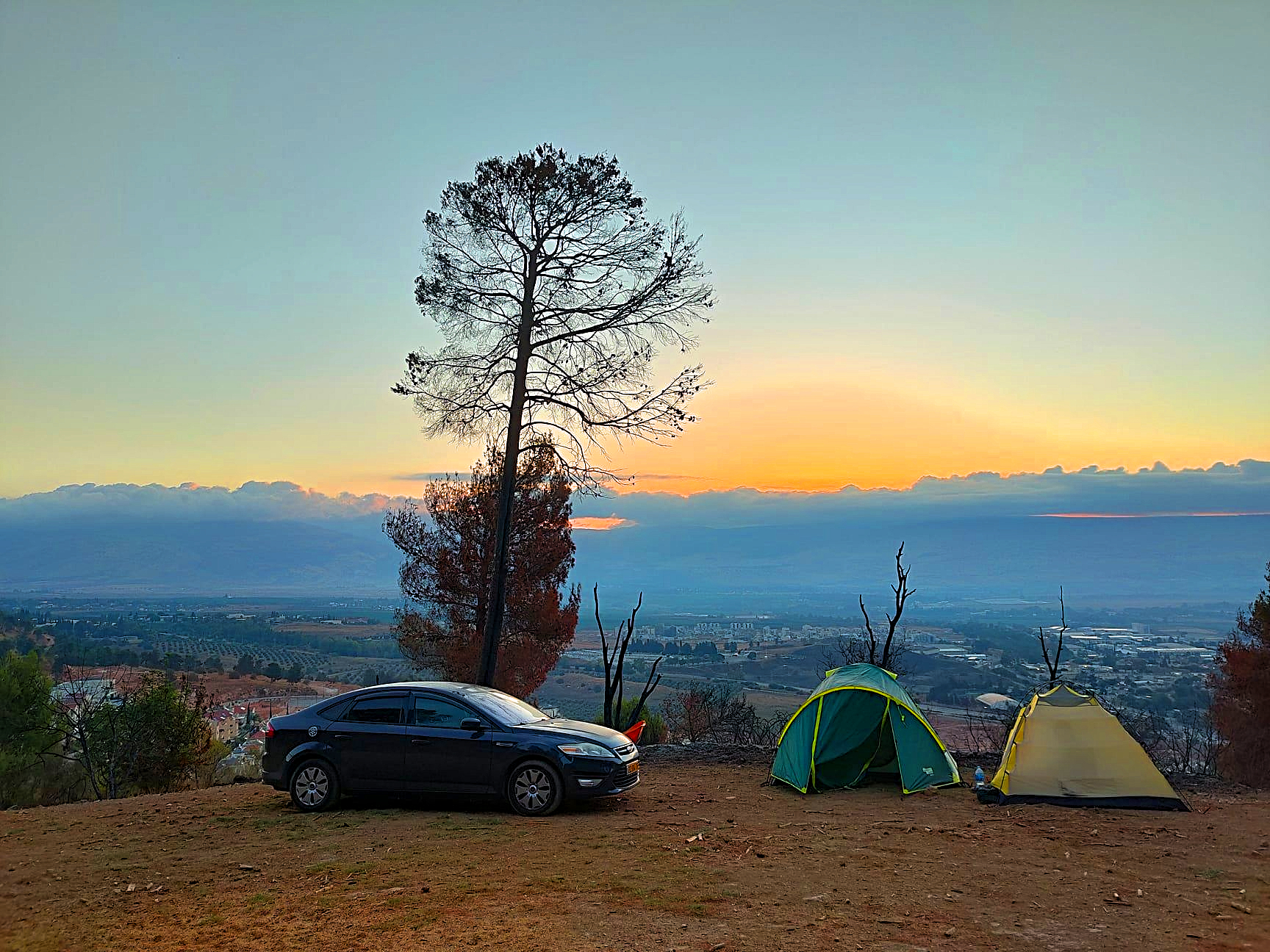
Traveling by car in Israel. Photo credit: © Dmitry Mishin
Parking in Israel
Parking, in Israel, can be a headache, we won’t deny it, but the good news is that there are plenty of parking garages around. Another app we’d recommend downloading is called PinkPark. This clever little tool shows you available parking throughout the area you’re in - it’s especially popular in Tel Aviv (where it’s notoriously hard to park!).
Working on the ‘shared economy’ basis, you can pay the owner of a spot (either at their home or workplace) and ‘sublet’ it by the hour. Since you’ve pre-booked it, that’s less time driving around or sitting in line, and more time to enjoy yourself! Parking garages (or lots) are plentiful in the big cities - whether they’re tucked away in side streets or in a mall/commercial building.
In Tel Aviv, they are dotted all over the city - especially close to the beaches, the Carmel Market, Sarona (a popular nighttime area, with many cafes and restaurants inside converted Templar Houses), Rothschild Boulevard, and Jaffa.
If it’s the summer, you might also want to consider an underground parking lot, since the heat can be relentless and your car will take the brunt of it. There are often digital signs at the entrance of these lots, to show you how many spaces are free on each level. However, please be aware that if you see a blue light flashing in a space, that means it's set aside for someone with a disabled badge.
At the large lots, take your ticket when entering and keep it until you leave, at which point you can pay at self-service machines. At smaller lots, there will usually be a man in charge who you’ll pay a set fee to for the day/evening. He may also ask you to leave your keys behind whilst you go off, in case he has to move your car to let someone else through! Don’t worry - your keys will be safe!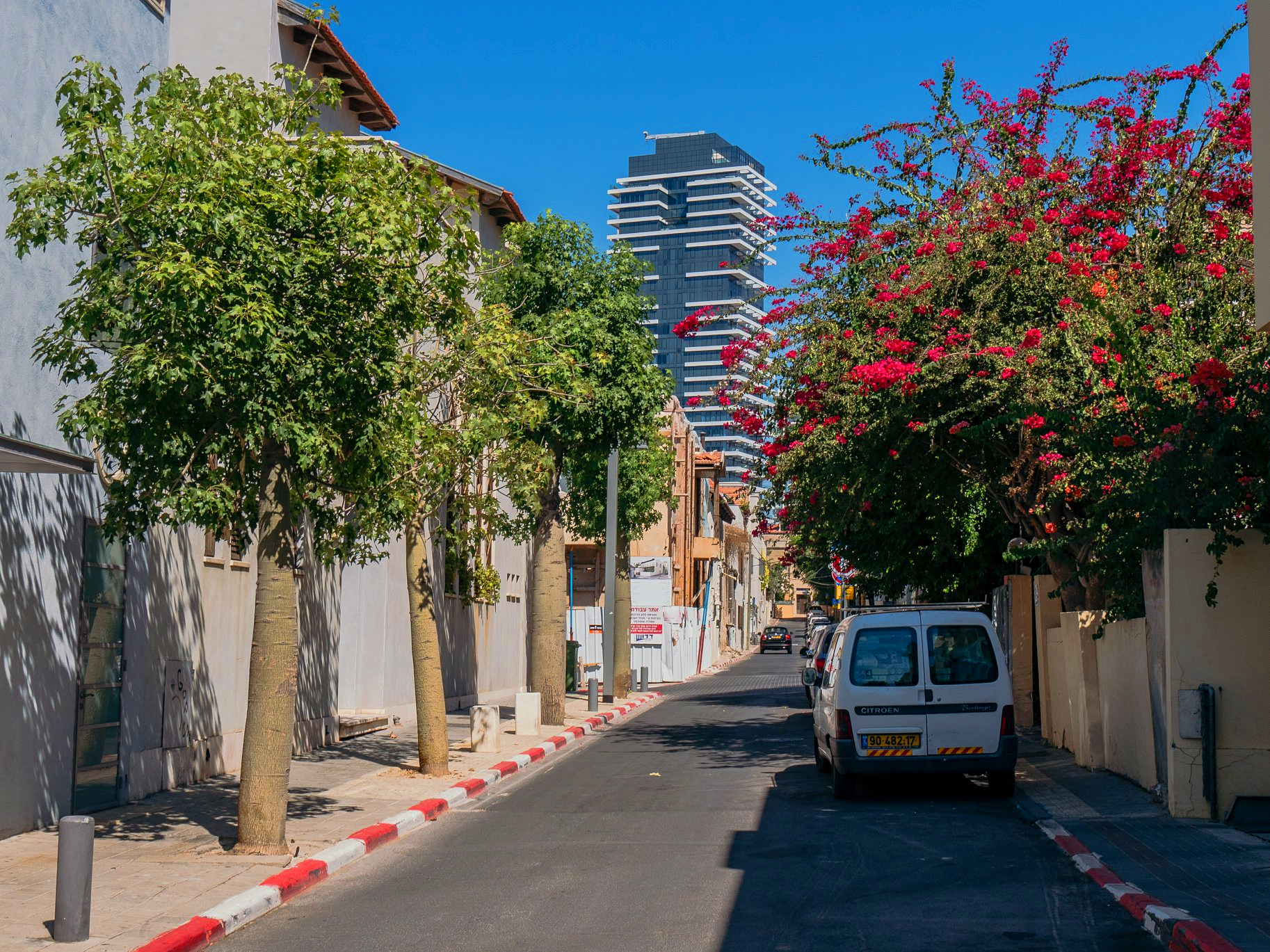
Red and white curb parking, Neve Tzedek, Tel Aviv, Israel. Photo credit: © Dmitry Mishin
Tips for the Car Renter in Israel
1. Do your homework beforehand. Car rental in Israel does not have to cost an arm and a leg. Prices can start from as little as 260 NIS (80 USD) a day and if you shop around online, a few days before, you might even grab a bargain and find a cheap car rental in Israel. Take a look at a few websites and see what’s there - you can also call the representatives themselves - they will all speak good English, for sure!
2. Remember to pack your own license (or, if you have it, an international driver’s license). This is really a deal-breaker! In general, most car rental agencies will insist that you are over the age of 24 (or sometimes 25) - this is for insurance purposes.
3. If you’re coming to Israel in the height of the summer or around the busy Jewish holidays (particularly Passover and Sukkot) we’d highly recommend that you plan ahead and book something before you arrive. At these times of the year, thousands of people arrive at Ben Gurion Airport each day and you don’t want to be disappointed when you get to the car rental desk and they’re all sold out!
Speed Limits in Israel
As with most countries in the West, Israel has speed limits and does enforce them. Here are a few of them, in kilometers.
Driving in urban areas 50 kms per hour
Highways 80 kms per hour
Highway 1 (Tel Aviv to Jerusalem) 100 kms per hour
High-speed highways 110-120 kms per hour
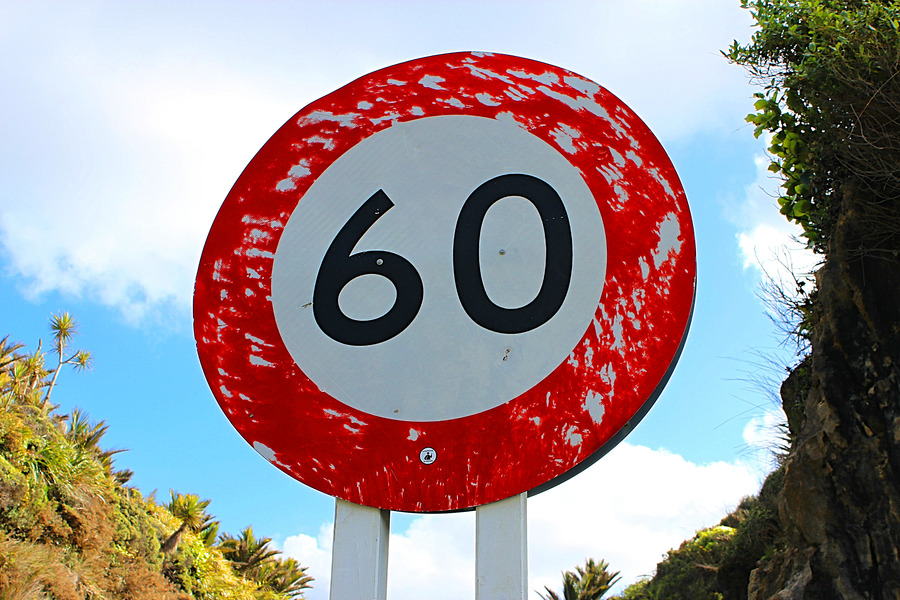
Speed limit road sign. Photo by Titus Blair on Unsplash
Rules for inside the car in Israel
1. It is mandatory to wear a seat belt. If you have toddlers or babies, make sure to strap them in their booster seats.
2. Talking on your cell phone (without using a hands-free device) is strictly forbidden. If you are seen doing so, you will in all probability be stopped and given a ticket. If that’s not enough of a deterrent, remember how dangerous it is!
3. Turning right at a red light in Israel is not allowed.
4. All rental cars are fitted with yellow reflective vests. So if you’re unlucky and you break down/have to pull over, put it on and make yourself visible at the side of the road.
5. Between 1st November and March 31st, it is mandatory to have your headlights switched on, whether driving within cities or on highways.
Traffic Lights in Israel
The traffic light system in Israel is a little different to that which you will find in North America or Europe. The red, yellow, and green colors have the same meanings as you would expect but you may see them in an order that you find strange. Here’s an explanation: when the light is red you have to stop; when it is red and yellow together, this means: ’get ready to drive’.
Once it’s green, and not before, you can set off. When you see the green light flashing, this means you need to begin slowing down and, quickly after, the light will turn yellow and then red once more.
Car Parking in Acre, Israel. Photo credit: © Dmitry Mishin
Right of Way in Israel
In Israel, if you see a green light you automatically have the right of way. That means you do not need to wait for oncoming traffic before turning. Of course, you should still keep a careful eye out for pedestrians!
Parking Rules and Regulations in Israel
Like every country, there are rules about parking in Israel, which are set out according to curb color, and here are some of them:
Blue and White - You will see this primarily in areas in large cities, where paid parking is available. Either you can buy a ticket from an old-fashioned machine and then display it in your front window, put some coins into a nearby meter or use the ‘Pango’ app, which can easily be downloaded to any Smartphone.
When you see blue and white curb parking, it’s also advisable to read the signs nearby carefully. Just because it;’s paid parking, that doesn’t mean it’s available 24 hours a day. For instance, it may be necessary to pay only up until 7 pm, it may be free on Shabbat or some of these spots might be reserved for local residents.
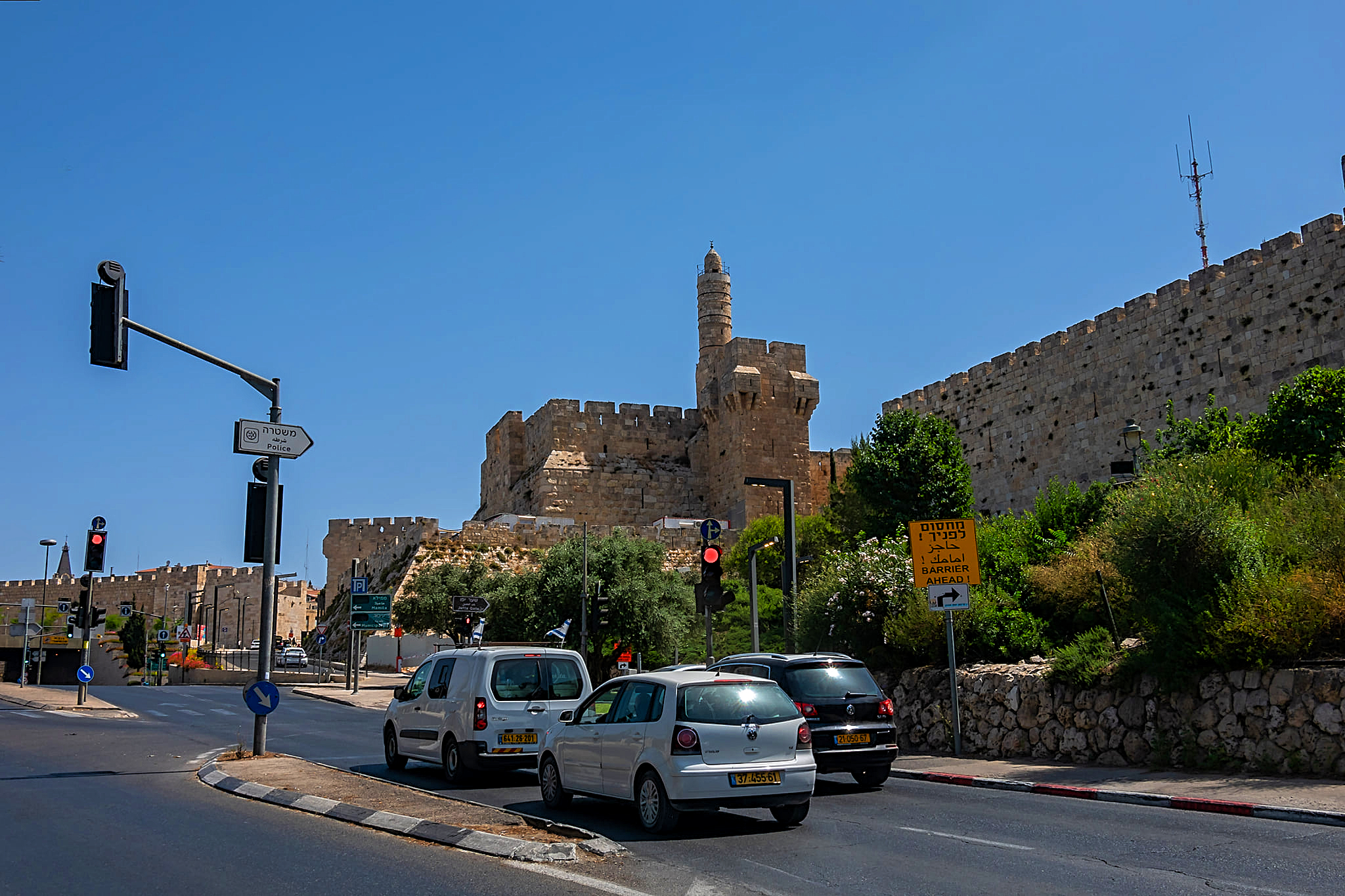
Cars at the traffic lights, Jerusalem, Israel. Photo credit: © Dmitry Mishin
Red and White - Simply put, red and white curb colors mean “do not park here under any circumstances.” If you do, you will be given a ticket (and officers patrol the major cities with vigilance) for at least 200 NIS (63 USD) and possibly more. Worst case scenario, your car will be towed away, which means a tiresome and costly visit to a compound to retrieve it. You have been warned!No Color - If you’re in a small town or community, it’s often possible to park more easily. This is because there’s not too much traffic and not many residents in the center. So if you see a curb without color, you’re good to pull in.
Highway numbers in Israel
Finally, here are some of the major highways you might be using, when driving: No. 1 - the Dead Sea – Jerusalem – Tel-Aviv - Jordan Valley; No. 2 - Tel Aviv - Haifa; No. 3 - Ashkelon - Kirya Malakhi - Latrun - Modi’in; No. 4 - Rosh Hanikra – Ashkelon.
Israel has one toll road, which is Route 6 (also known as the Trans-Israel or Yitzhak Rabin highway). This begins in the north of Israel, near the Lebanon border, and runs down to the center, to Tel Aviv and Rishon LeZion. If you want to use this road, factor in the cost before you set off - in general, from the far north to Tel Aviv will probably cost you around 32 NIS (10 USD) but do check first. Now buckle up, put some gas in the car and get going!
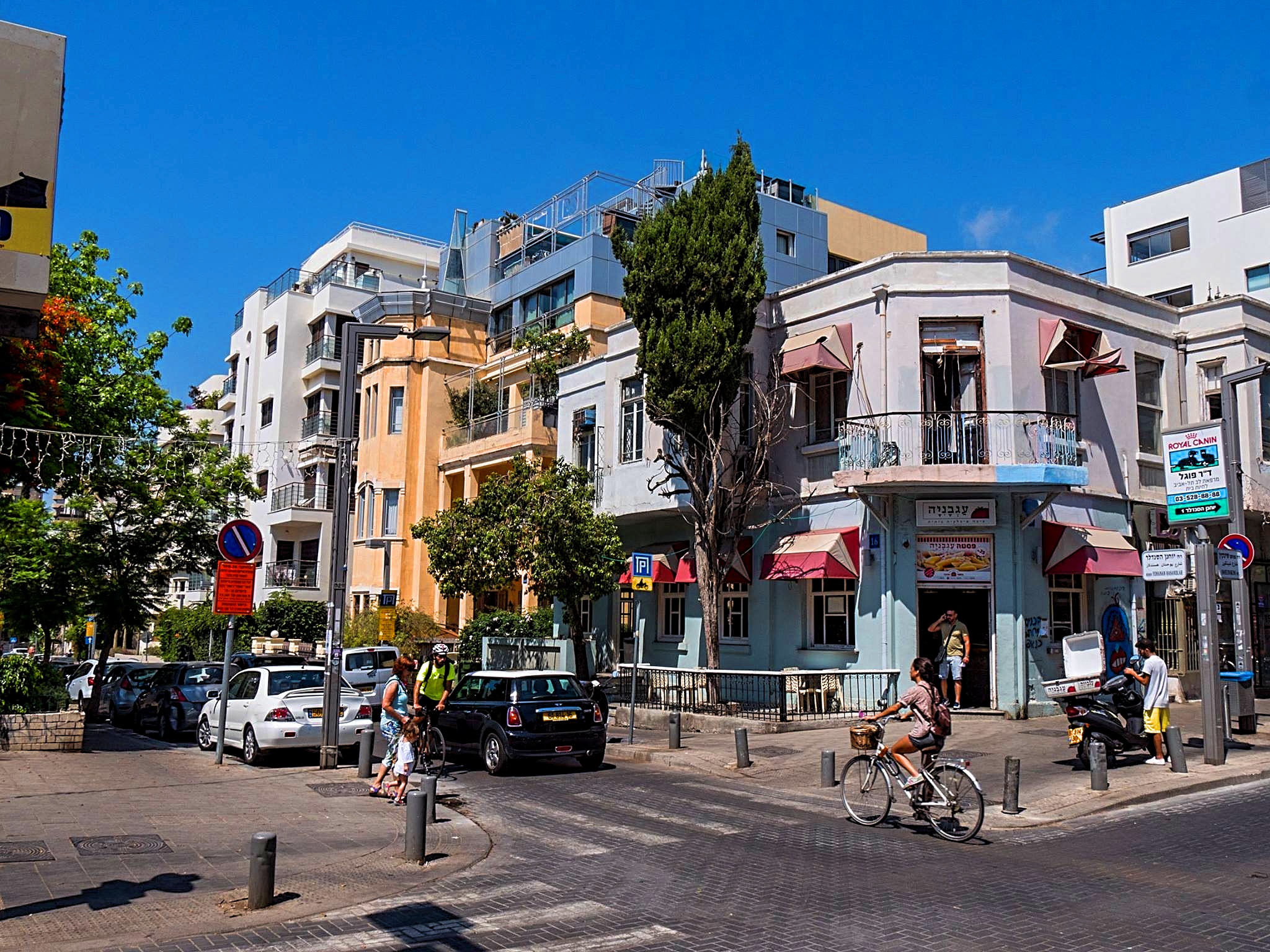
Cars in the White City of Tel Aviv, Israel. Photo credit: © Dmitry Mishin
 Login / Register
Login / Register
 Contact Us
Contact Us
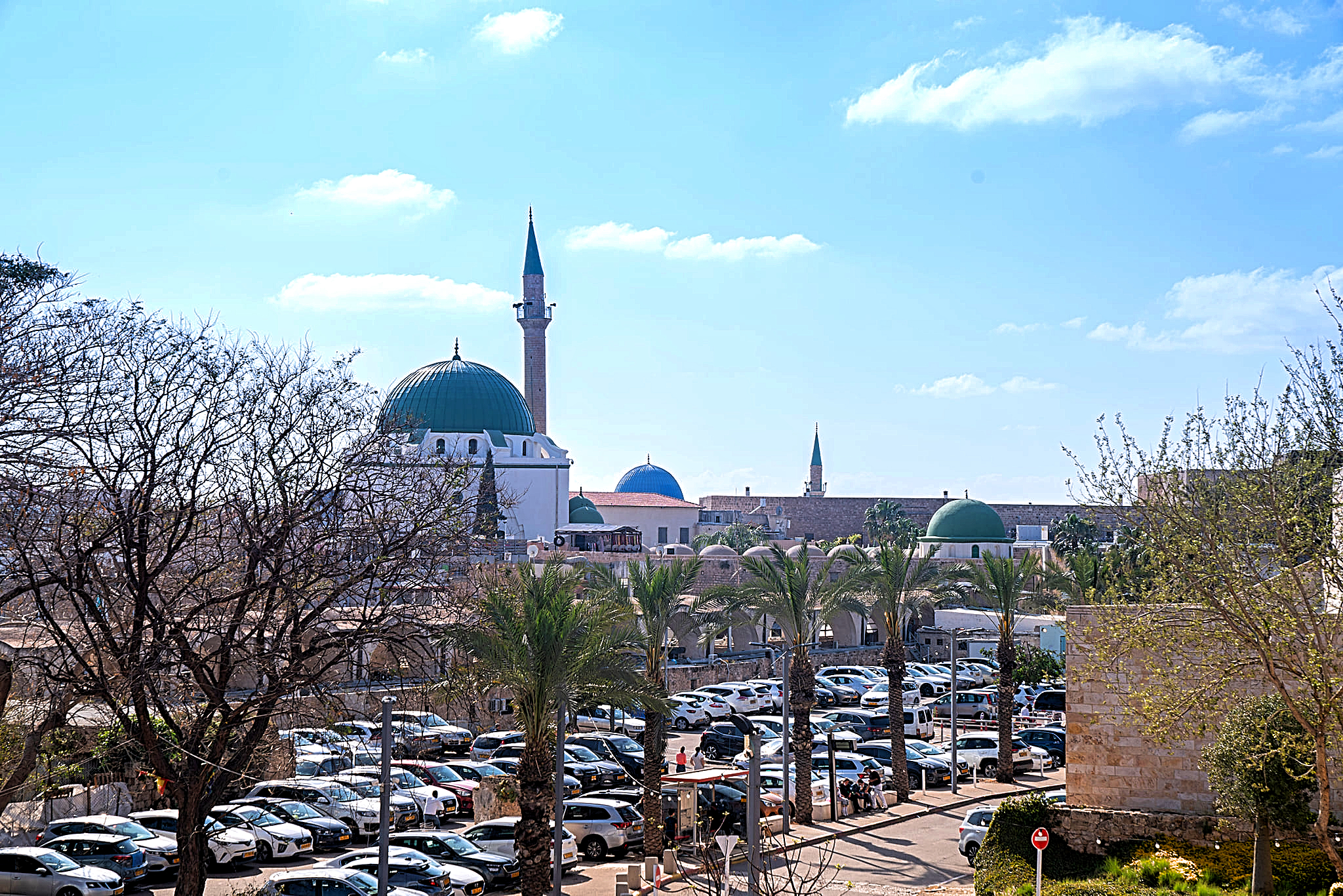
 Certificate of Excellence
Certificate of Excellence Guaranteed Departure
Guaranteed Departure Low Prices Guaranteed
Low Prices Guaranteed 24/7 Support
24/7 Support




